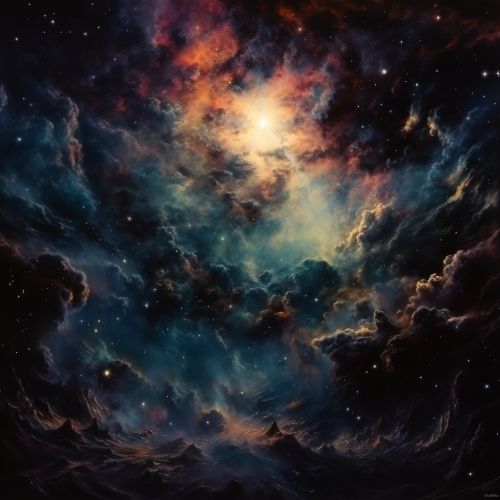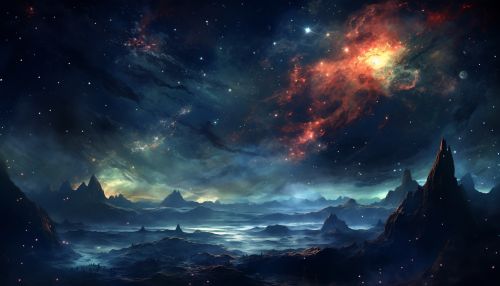Heat Death of the Universe
Overview
The Heat Death of the Universe is a theoretical prediction of the ultimate fate of the universe, postulated by the laws of Thermodynamics. It suggests that the universe would evolve to a state of no thermodynamic free energy, leading to a uniform temperature throughout, rendering it incapable of sustaining processes that consume energy, such as life.


Concept
The concept of the heat death of the universe is rooted in the second law of thermodynamics, which states that in a closed system, entropy, or disorder, tends to increase over time. This implies that the universe, if considered a closed system, will eventually reach a state of maximum entropy.
The idea of the heat death stems from the 1850s thoughts of Lord Kelvin, who took the theory of heat as mechanical energy loss in nature and extrapolated it to larger processes on a universal scale.
Thermodynamics and the Universe
Thermodynamics is the study of energy and its transformations. The laws of thermodynamics govern the behavior of energy in the universe, from the microscopic interactions of atoms to the large-scale dynamics of galaxies.
The second law of thermodynamics is particularly relevant to the concept of the heat death of the universe. It states that the total entropy of an isolated system can never decrease over time, and remains constant if and only if all processes are reversible. Isolated systems spontaneously evolve towards thermodynamic equilibrium, the state of maximum entropy.
In the context of the universe, this suggests that given sufficient time, the universe will reach a state of maximum entropy where all energy is evenly distributed. In this state, no work can be performed, and all life and activity cease. This is the scenario known as the heat death of the universe.
The Expanding Universe and Heat Death
The Big Bang theory posits that the universe began in a state of extremely high temperature and density and has been expanding ever since. As the universe expands, it cools, and its energy density decreases.
The Cosmological principle states that the universe is homogeneous and isotropic on large scales. This means that the universe's energy density is the same everywhere, and it looks the same in all directions.
If the universe continues to expand indefinitely, it will approach a state of maximum entropy, or heat death. In this state, all matter and energy will be evenly distributed across the universe, and all gradients that could drive heat engines will be gone. The universe will be in a state of thermal equilibrium, with a uniform temperature close to absolute zero.
Timescales and the Heat Death
The timescale on which the heat death of the universe would occur is subject to much speculation. It is generally agreed that if it does occur, it will not be for at least many trillions of years.
The exact timescale depends on various factors, including the nature of dark energy, the possibility of proton decay, and the rate of the universe's expansion.
Criticisms and Alternatives
The heat death scenario is not universally accepted. Some scientists propose alternative scenarios for the ultimate fate of the universe, such as the Big Crunch, the Big Rip, or the Big Bounce.
The Big Crunch is a scenario in which the universe's expansion slows, stops, and reverses, causing the universe to collapse in on itself. The Big Rip is a scenario in which the universe's expansion accelerates indefinitely, ripping apart galaxies, stars, and even atoms. The Big Bounce is a scenario in which the universe undergoes a series of expansions and contractions, each cycle beginning with a big bang and ending with a big crunch.
Each of these scenarios has its own implications for the future of the universe, and each is subject to its own set of uncertainties and controversies.
